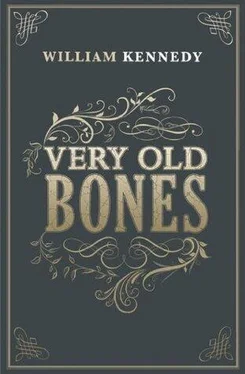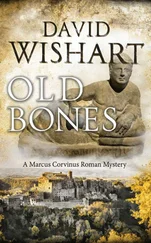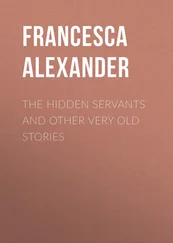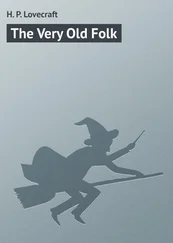“Jesus descended into hell, and what did he find? He found my wonderful, lascivious mother, my saintly, incestuous father. He found all of you here, this carnival of panders and half-naked whores, scavenger cripples, easy killers, and poxy blind men. He found you burglars and dope fiends, you crutch thieves and condom salesmen, you paralytic beggars and syphilitic hags, all doomed and damned to this malignant pigmire for an eternity of endless and timeless sin.”
The audience hooted and whistled its approval of my sermon (Giselle took a photo of them) and I laughed wildly and bit myself on the palm of my left hand, then dripped blood from my thumb into my wineglass (Giselle took another photo, sending the carnival into a new eruption of applause). What she had thought to be wine was obviously my blood, and so she moved closer to where I could see her, and when she came into view I stopped my harangue. I snatched up my coat, jumped down from the bar, sucking my hand and balancing my wine, and I kissed Giselle on the mouth with my bloody lips. She backed off from me and raised her camera.
“I want you to see yourself as you are tonight,” she said to me, and I opened both palms outward to show her where I had invested myself with the stigmata of the new Jesus.
“We must leave,” I said to her. “They all want to kill me for my coat and suit. And they’ll kill both of us for your camera.”
“Where is your whore?” she asked me.
“She’s working, over there,” I said, and I pointed to the table where my Gisela was fellating the handless wrist of a one-eyed beggar whose good hand was somewhere inside her blouse.
Giselle rapidly snapped photos of this, and of the entire mob, as the rabble eyed us and whispered. I broke my wineglass on the floor as we retreated, insuring that at least the barefoot and shoeless freaks would think twice before following us. We fled Fritz’s Garden, leaped into the stolen Mercedes, and I then drove through the dark streets and woodlands of Frankfurt, zigzagging at wild speed, turning on two wheels (or so it felt) into a place that seemed to be a wall and certain death but was an alley, as I saw, though Giselle didn’t, and she chose to scream.
“Let me out!” she yelled, and I slowed the car.
“Are you bored?” I asked.
“I find death boring. Why should I die because my husband wants to? I find it boring.”
“You certainly have style, Giselle, to think about death when we’re out for a joy ride.”
I reached behind the driver’s seat and found a small package, then deftly, with one hand, unwrapped it to reveal four bratwurst afloat in mustard, and I offered the mess to Giselle. She set it on her lap and I then found my bag of Brötchen , and while holding the steering wheel with my knee, I split a Brötchen , stuffed a bratwurst into its crevice, hot-dog style, and handed it to her.
“Is this today food?” she asked.
“As I recall.”
“How long since you bought this?”
“Time means nothing to me.”
“It means everything to bratwurst.”
“Trust me.”
“Are you in your right mind?”
“No, nor have I ever been. My life is a tissue of delirious memory.”
“What do you remember?”
“Peculiar things. The Captain’s hypocritical face when we met at MP headquarters after my arrest. The smell of my father’s whiskey-and-tobacco breath when I was twelve. The desire to raise a handlebar mustache like my father’s. The spasms of bliss that always punctuate the onset of love with you. Why do you ask?”
“I was curious about your saintly incestuous father.”
“Did I speak of my saintly incestuous father?”
“You did.”
“I can’t account for it. May I take off your clothing?”
“It remains to be seen.”
“I would stop the car, of course.”
“That would improve our chances of not dying a hideous death.”
I stopped the car and went for the back of her neck, running one hand under her hair and with the other seeking blouse burtons. She pushed me away and got out and I instantly broke into a fit of sobbing. The sobs choked me, my body twisted, my face fell into the bratwurst, and I made the noises a man makes when he knows that the sorrows of the world are his alone.
Giselle came round to my side of the car and opened my door, tugged me up and out. I stopped sobbing, rubbed the mustard off my face, and she and I walked together on strange streets, she silent, I smiling with what came to be known as my zombie joy. Giselle didn’t know where to take me. I’d been a fugitive now for two days and she feared premature contact with the military. My wounds, though not serious to look at, were a problem; for she envisioned the Military Police ignoring them and throwing me into a cell where I’d molder in my zombie coma, oblivious to the venomous impact my own morbid bites might be having on my body.
“You bit yourself, Orson,” she said to me.
“Bit yourself,” I said.
“Our mouths are full of poison,” she said.
“Yes. Pyorrhea. Gingivitis.”
“What if you bit your own hand and infused the pyorrhea into your fingers?”
The thought gave me pause. I stopped walking and looked at my hand.
“Pestilential saliva,” I said.
“Exactly.”
“Bronchial methanes, colonic phosgenes. Can they become agents of involuntary suicide?”
“I think you’re getting the idea,” she said.
The perception raised my spirits and Giselle decided to call Quinn, who would be getting ready for reveille, the sun now breaking through the final moments of the night. Quinn had access to a Jeep and had contacts with German newspapermen who would know where to get me treated. I liked Quinn and trusted him, which certainly proves something. I didn’t know he’d been in love with Giselle since the night she performed on the high stool at the Christmas party. Quinn went to dinner with us now and again and I saw that Giselle found him appealingly innocent.
Quinn did know a doctor, an ex-medical officer in the Wehrmacht who had a small general practice in the suburb of Bonames. He treated my five bite wounds and then we went back to our apartment, where Giselle bathed me, washed the pomade out of my hair, and dressed me in my uniform so I would surrender as a soldier, not a madman. I was contrite at the surrender, but in a moment of messianic candor I told the officer of the day I had been to hell and back and was now prepared to redeem the world’s sins, including his.
They put me in tight security and limited my visitors to Giselle and an army psychiatrist, Dr. Tannen, who saw the condition I was in and transferred me to an army hospital. It became clear I was not fit to stand court martial.
“The man seems to have had a psychotic episode, but I would not say he’s psychotic,” the doctor told Giselle in my presence, as if I didn’t exist. “He is living in the very real world of his second self, where there is always an answer to every riddle. He believes he is a bastard, an unwanted child. He was seriously neglected by mother and father, though he exudes love for them both. He is so insecure that he requires a façade to reduce his anxieties to manageable size; and so every waking moment is an exercise in mendacity, including self-delusion. He has found no career direction, and has completed nothing of significance to himself. He left the publishing world, rejects teaching and journalism, loathes the army, and rues the inertia that allowed him to be called back to active duty. He sees nothing worth doing, including completing the last contorted sentence of his unfinished book, which now ends on a high note of suspense with a comma. He is a man for whom money means nothing, but who has wrapped himself inside a cocoon of such hubris that he centers his life at the apex of the haut monde, as he calls it, a world for which there is no equivalent in reality, at least not without much more money than he possesses. Seated beside him at this apex is you, my dear, his goddess of the unattainable moon. He never quite believes you are really his wife, and so, when he reaches out to impose love upon you and you push him away, his moon explodes, and he drops into near catatonia, his so-called zombie condition.”
Читать дальше












